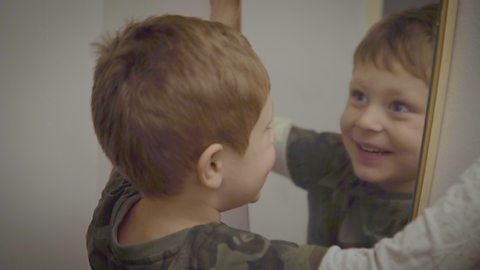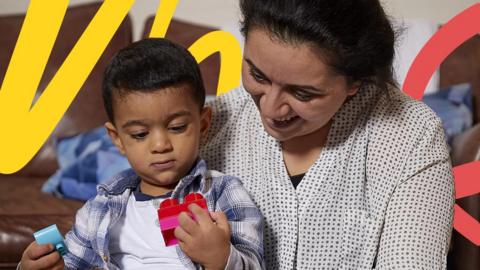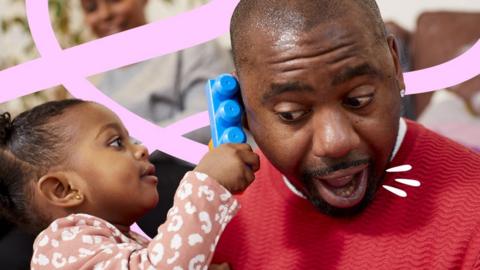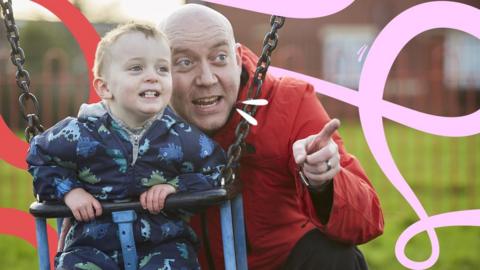Children's speech and language
Your questions answered
Speech and language development FAQs
Find answers to some questions you might have about your child's speech and language development.
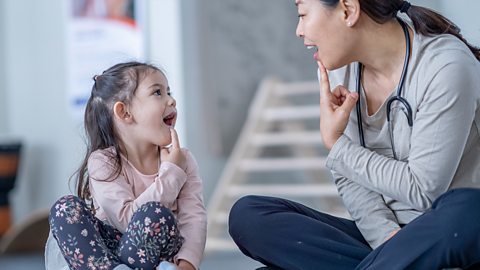
Speech delay: Your questions answered
We asked our Speech and Language therapists to answer some of your questions about speech delay.
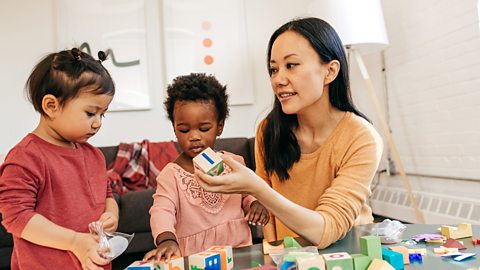
Find out more about speech sound development
We asked SLTs, Janet Cooper and Monal Gajjar, to answer some of your questions about learning phonics.
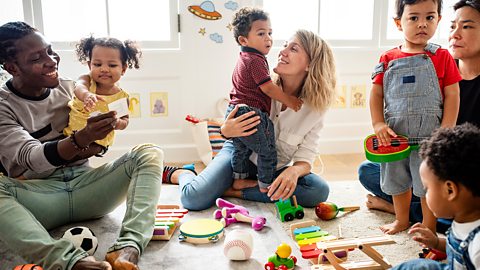
Factors affecting speech and language
Being a parent with dyslexia: Tips for reading with your child
We spoke to the British Dyslexia Association to get some top tips for parents who struggle when reading with their kids.
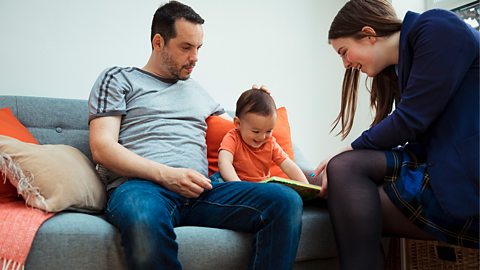
Should I be worried my child isn't talking?
Speech and Language Therapist Janet Cooper explains what signs to look out for and the help that's available.

A guide to helping your child with a stammer
Speech & Language Therapist, Janet Cooper, shares her top tips for helping your child with their stammer.

All you need to know about glue ear in babies and toddlers
What is glue ear? How is it treated? How does it affect speech and language development? We asked the experts?

Key talking tips
Tools for Talking 0-3 months: Why getting face to face with your baby is brilliant
The best thing you can do when talking to a newborn baby is to get up close and make eye contact with them.
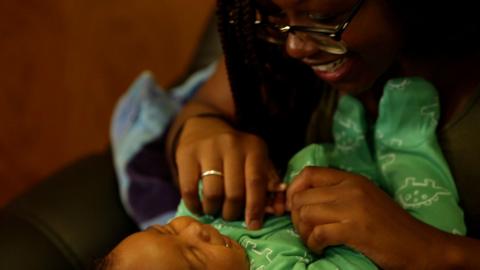
Tools for Talking 3-6 months: Starting mini-conversations with babies
How responding to your baby's sounds and waiting for responses back can teach them all about how conversations work at a young age.
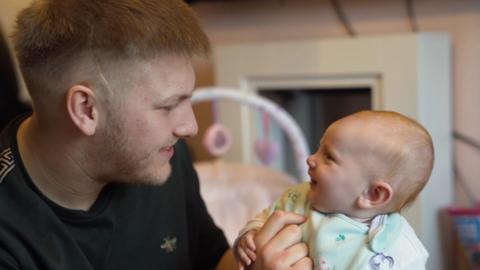
Tools for Talking 6-9 months: Responding to baby babble
When babies are babbling they're actually having their first go at talking and are practising the speech sounds.
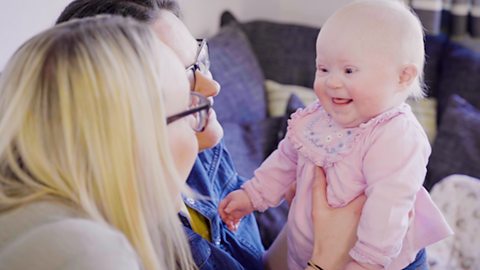
Tools for Talking 9-12 months: Tuning into your baby's interests
How you can boost your baby's early language learning by tuning into the things they're taking an interest in and talking to them about it all.
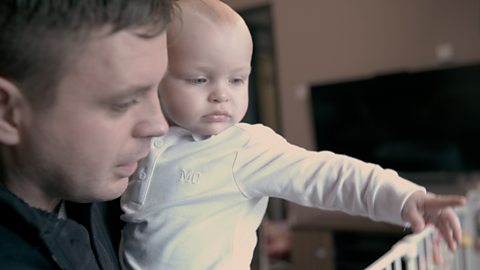
Tools for Talking 12-18 months: Following baby's lead
When your baby starts to point and say their first words, it's a good idea to let their interests lead your chats together and ask a few simple questions.
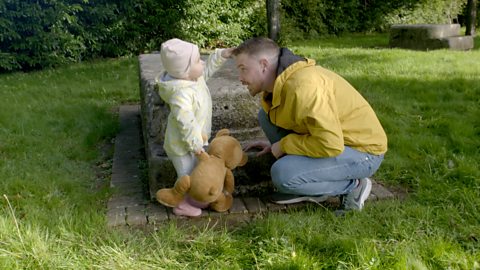
Tools for Talking 18-24 months: Expanding on toddlers' words
Easy tips for helping your 18-24 month old with their language learning. As toddlers start to string a few words together, help them go that step further by expanding on the things they say.

Tools for Talking 2-3 years: Responding to toddlers with longer sentences
Build toddlers' understanding of sentence structure by repeating their sentences back to them with corrections, allowing them to hear how sentences are formed correctly.
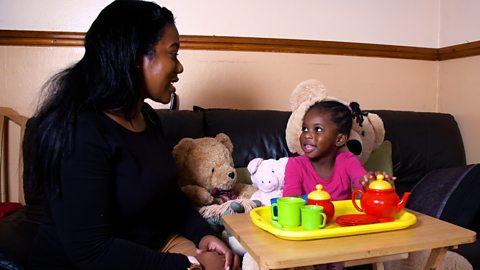
Tools for Talking 3-4 years: Talking about past and future
Help grow your child's language skills and understanding of the world by introducing them to talk about the past and future.
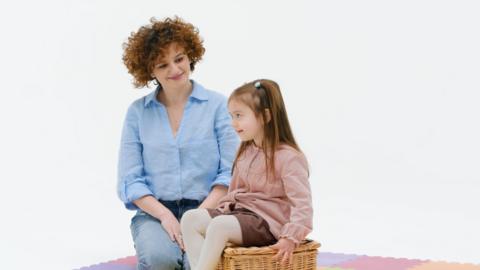
Tools for Talking 4-5 years: Exploring word sounds
Help grow your child's understanding of phonics by playing with rhyming and sounding out different words so they can hear things that sound the same or different.
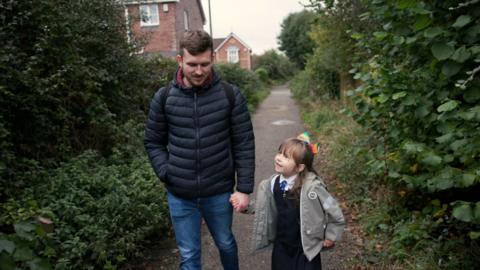
Key talking tips for any age
Find ways to bond with your child and help develop their language skills, no matter their age.
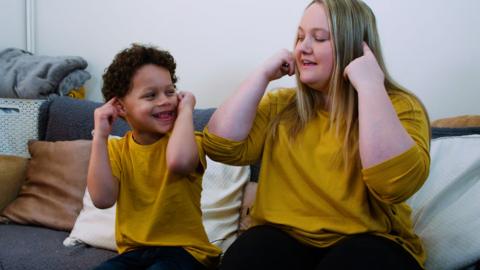
Early language learning tips
Four top tips for talking to your baby
Babies don't just soak up language like sponges, they need to learn from you.
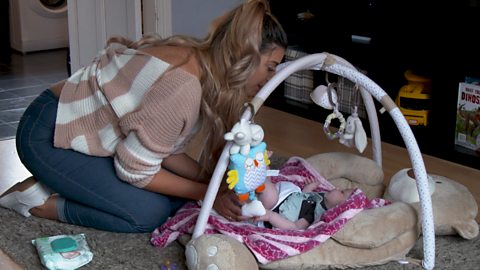
Bookstart: How to make the most out of your Bookstart baby pack
Simple guides to how you can make the most of your newborn and baby Bookstart packs from the BookTrust.

Early language development - The benefits of making sounds and talking to your baby from birth
Why should you talk to your baby from birth when they aren't able to talk back?
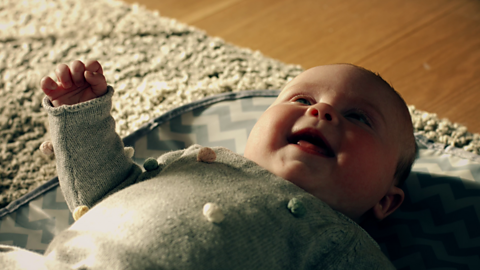
Should I be worried my child isn’t talking?
Speech and Language problems affect approximately 1 in 10 children.

Baby facial expressions: 5 ways your baby is already trying to communicate
Well before they can say words, there are all sorts of ways your baby communicates with you.
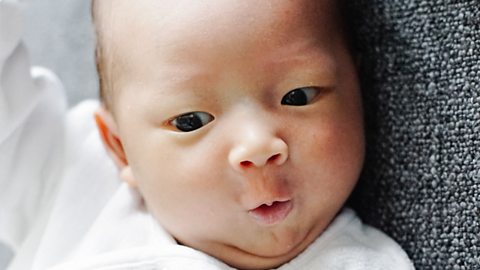
Conversations with your child: Easy ways to boost your baby talk
Give your baby’s language learning a great start between birth and 12 months.
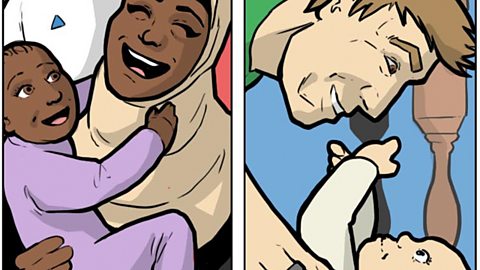
Why do babies cry? 8 reasons your baby might be crying
Is your baby crying for seemingly no reason? It doesn't necessarily mean something is wrong.
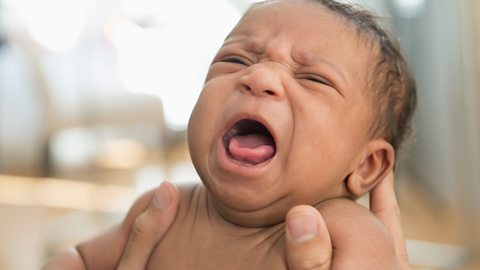
When do babies start talking?
Babies communicate in lots of different ways, but when do babies say their first words?

Watch our Speech Lab series
How far can newborns see?
Professor Ben Ambridge does some experiment with baby vision and focus.
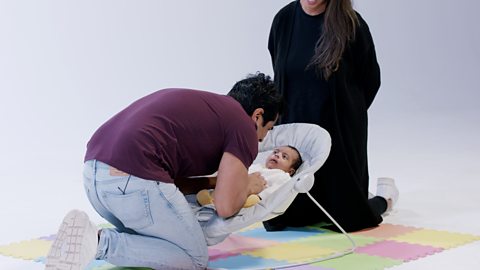
Is speaking in baby talk good for babies' language learning?
Professor Ben Ambridge investigates how using a 'baby voice' can actually help babies language develop and shows a fun experiment you can try at home.

How can peekaboo help babies to learn?
Professor Ben Ambridge investigates how games like peek-a-boo can play an important part in children's developing communication skills in our Speech Lab.
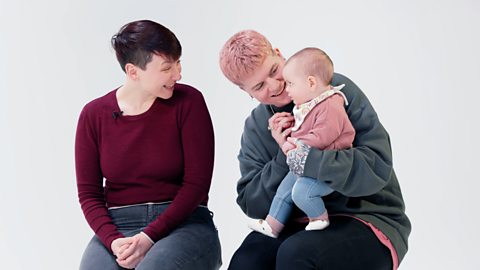
Can you get your baby to babble more? - The Speech Lab
Professor Ben Ambridge investigates whether you can make babies babble more and explains why babies babble in the first place.

What is my baby interested in? And why is tuning into your child's interests so important?
Professor Ben Ambridge investigates how paying attention to the things that your baby is interested in can help to accelerate their language learning.
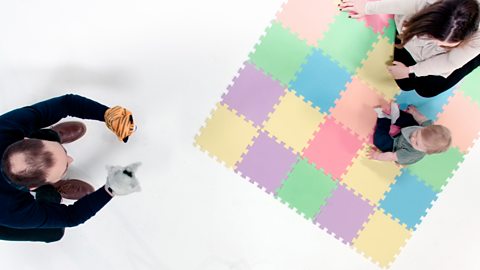
Should I lead or follow my baby? - The Speech Lab
Professor Ben Ambridge investigates how letting baby lead when it comes to chatting and playing is the best way for them to learn.
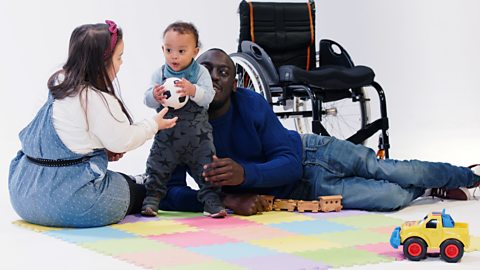
What's the best way to respond to my toddler's first words? - The Speech Lab
Dr Saloni Krishnan helps a family explore the best ways to respond to their children's first words to help them to talk even more.
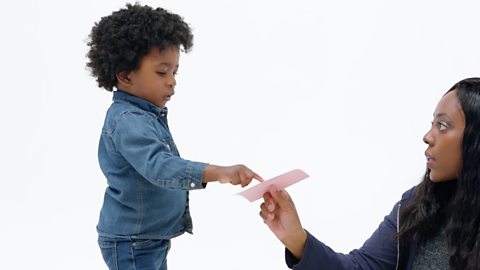
How can you help toddlers say words properly? - The Speech Lab
How do you correct your toddler when they say words wrong? Dr Saloni Krishnan helps a family explore the effect of recasting, which means repeating a toddler's words with mistakes corrected.

How does talking about the past help children's language skills? - The Speech Lab
Dr Saloni Krishnan helps a parent explore the effect that talking about past events has on her child's language skills.
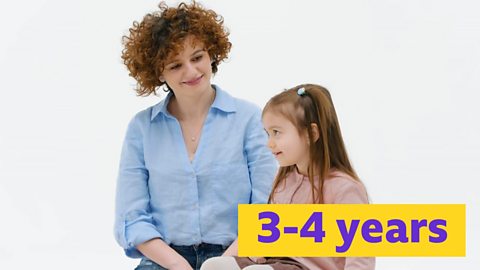
How can rhyming words help children learn? - The Speech Lab
Dr Saloni Krishnan helps a parent explore how rhyming helps children to build their vocabulary and understanding of word sounds.
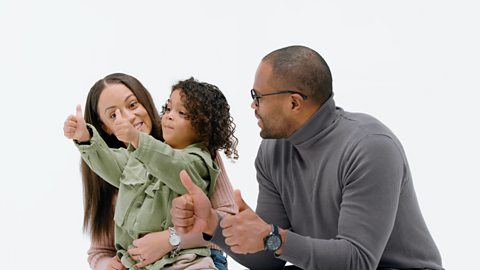
Top tips for communication
When do babies start to talk?
Speech and Language therapist Janet Cooper from Stoke Speaks Out suggests some milestones to look out for.

11 easy ways to help your child's speech and language at home
We've put together a list of tips with speech therapists to help you help your child's language growth at home.

All you need to know about signing with your baby or toddler
We caught up with the experts to find out everything you need to know about baby signing.
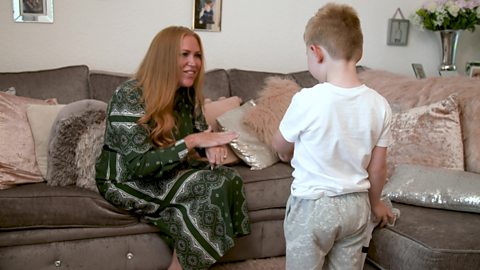
What is echolalia?
Speech and Language UK's Claire Smith tells us all about echolalia, when children repeat back what you say to them.
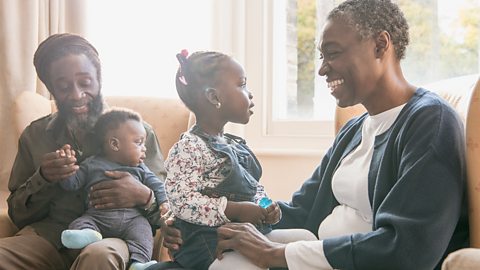
How to use objects, pictures and signs to help babies communicate
Expert advice on using alternative modes of communication to help children's early language skills.
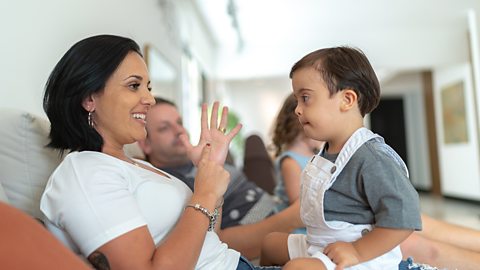
How can pictures help with children's communication?
SLT, Alys Mathers, shares some easy ways that you can use images to help your child's language development.
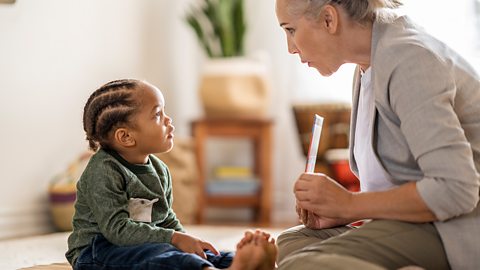
What is phonological awareness?
Early years practitioner Jamel shares his top tips for developing your child's phonological awareness.
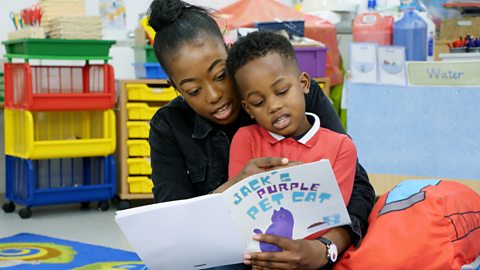
5 ways your baby is already trying to communicate
What is your baby trying to say when they're really small? Find out some of the signs to look out for.

8 reasons your baby might be crying
Crying is one of the main ways babies have to communicate early on - find out some of the things their cries could mean.

Top tips on sharing stories from a Speech and Language Therapist
Reading stories develops social skills and helps toddlers learn about the world. The Toddler Club shares their tips.
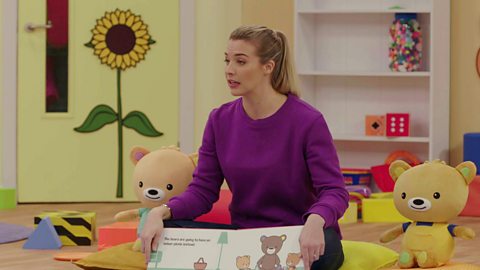
More language learning tips
11 inspiring reasons to visit your library
There's more to do at the library than read books. Two library experts share their tips and advice.
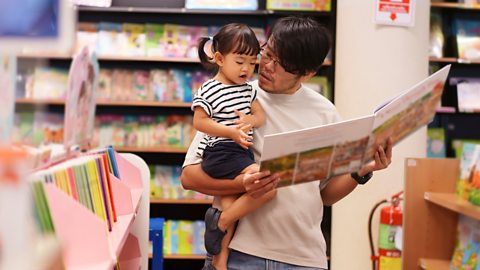
Why touching and talking is so important for newborn babies
Dr Michelle Peter explains why touch is such an important part of development for a newborn baby.
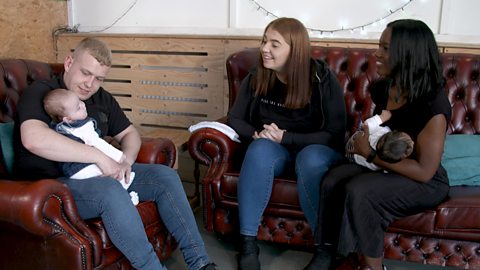
Early language development - Helpful advice from a Speech and Language Therapist
How can I help my baby learn to talk?
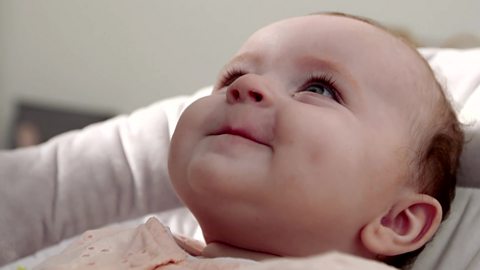
Early language development - Five top tips from a Speech and Language Therapist
Your baby’s communication skills grow a lot in their first year of life.
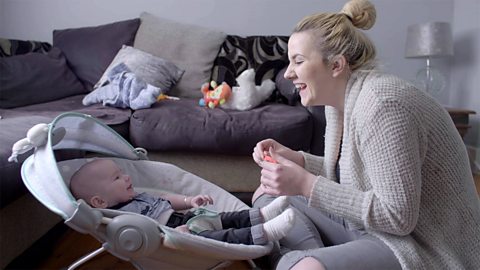
Dr Guddi Singh's everyday activities to make language fun for your baby
Making time to chat to your baby throughout your daily routine is important for your baby to develop their language and communication skills.
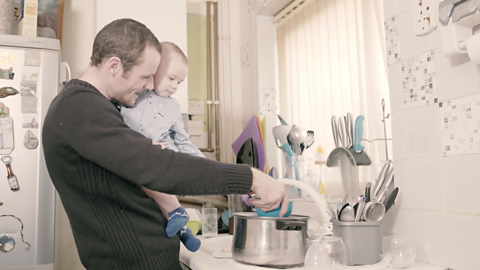
Dr Guddi Singh: How to develop your baby's listening and focus skills
At around 3 to 4 months, babies can see anywhere from several feet in front of them to all the way across the room.
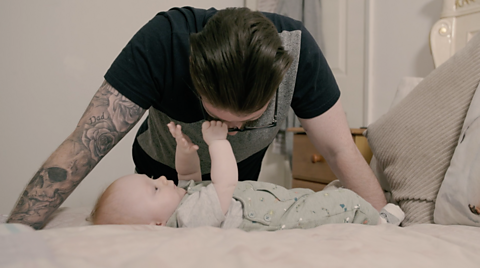
Dr Guddi Singh's top tips for 9-12 months: Using actions with your words
Dr Guddi Singh offers her top tips on how to use actions when you are talking and playing with your baby.

Dr Guddi Singh's top tips for 9-12 months: Taking turns
Dr Guddi Singh shares some easy ways to include turn-taking games into your everyday routine and explains why it's an important skill for language learning.
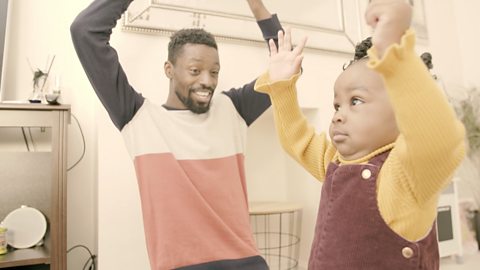
Tips for language development - 12-18 months
Speech and Language Therapist Sinead Campbell gives some advice on making the most of interactions with your 12-18 month old to help their speech and language skills.
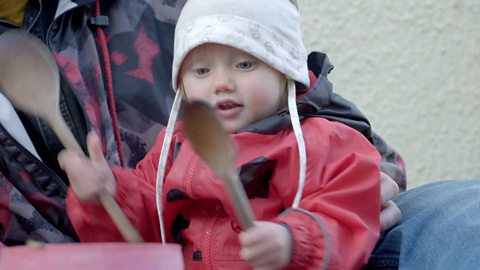
Helpful advice from a speech and language therapist - 12-18 months
Speech and Language Therapist Sinead Campbell has some tips for making the most of interactions with your 12-18 month old to help their speech and language skills.
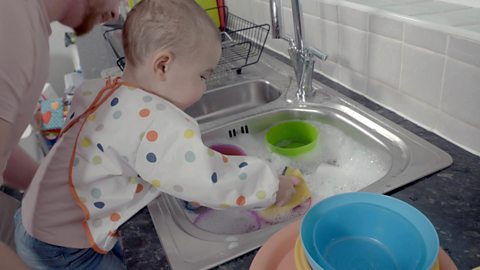
Top tips from a speech and language therapist: 18-24 months
Easy ways to boost your child's language skills through everyday activities.
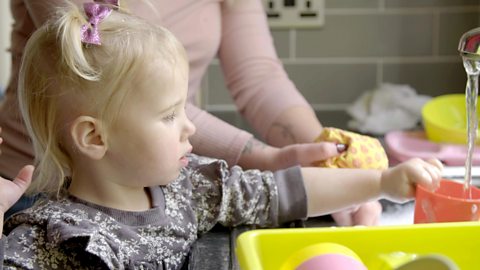
Language development at 18-24 months - tips from a Speech and Language Therapist
Speech and language therapist Sinead Campbell explains how daily routines are a great time to build your child's language skills without having to make time specifically.
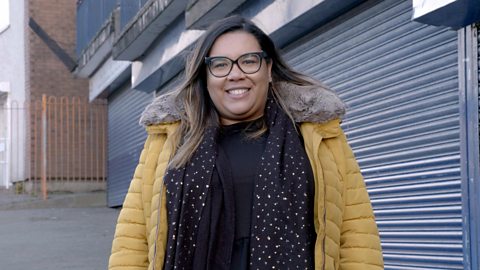
Dr Michelle Peter's top tips for 2-3 years: Taking turns
Children's language researcher Dr Michelle Peter gives some advice about how taking turns supports your 2-3 year old with their communication and social skills.
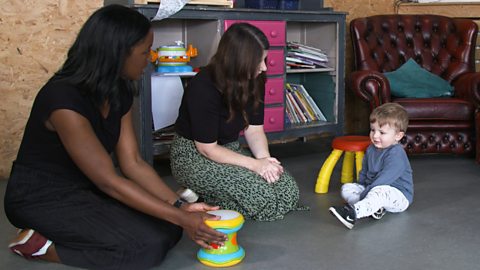
Dr Claire Halsey's top tips for 2-3 years: Imaginary play
Child Development Expert Dr Claire Halsey shares some advice about imaginary play with your 2-3 year old to support their language development.
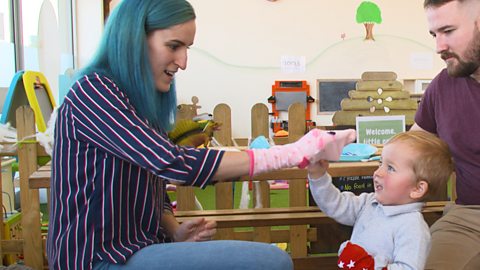
Dr Claire Halsey's top tips for 3-4 years: Memory game
Child Development Expert Dr Claire Halsey talks about how playing a memory game with your 3-4 year old helps to support their language development.
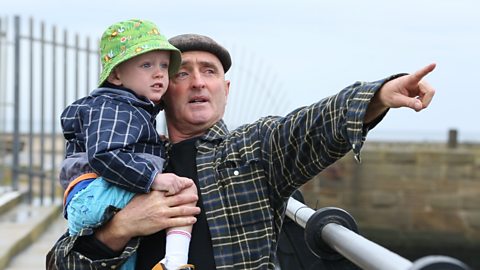
Dr Claire Halsey's top tips for 3-4 years: Learning opposites
Child Development Expert Dr Claire Halsey talks about how learning about opposites helps to boost your 3-4 year old's growing vocabulary and language skills.

Dr Jamie Lingwood's top tips for 4-5 years: Making up your own nursery rhymes
Children's language researcher Dr Jamie Lingwood explains how making up your own nursery rhyme is a fun way for your 4-5 year old to get creative with words.
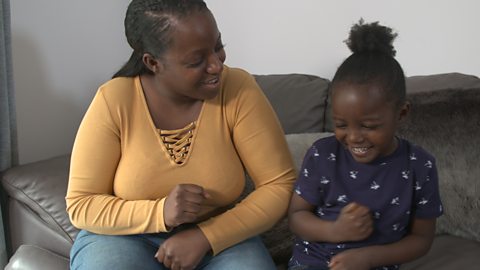
Dr Jamie Lingwood's top tips for 4-5 years: Exploring sounds at storytime
Children's language researcher Dr Jamie Lingwood talks about how making different sound effects during storytime is great for your 4-5 year old's imagination and language skills.
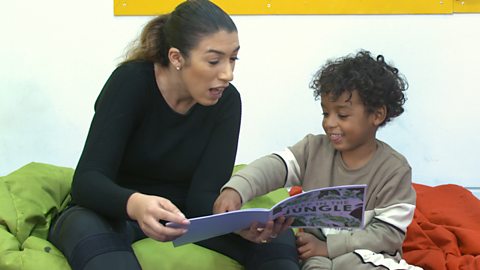
Is a lisp inevitable?
Speech and Language Therapist Janet Cooper discusses lisps and how they could be avoided early on.
